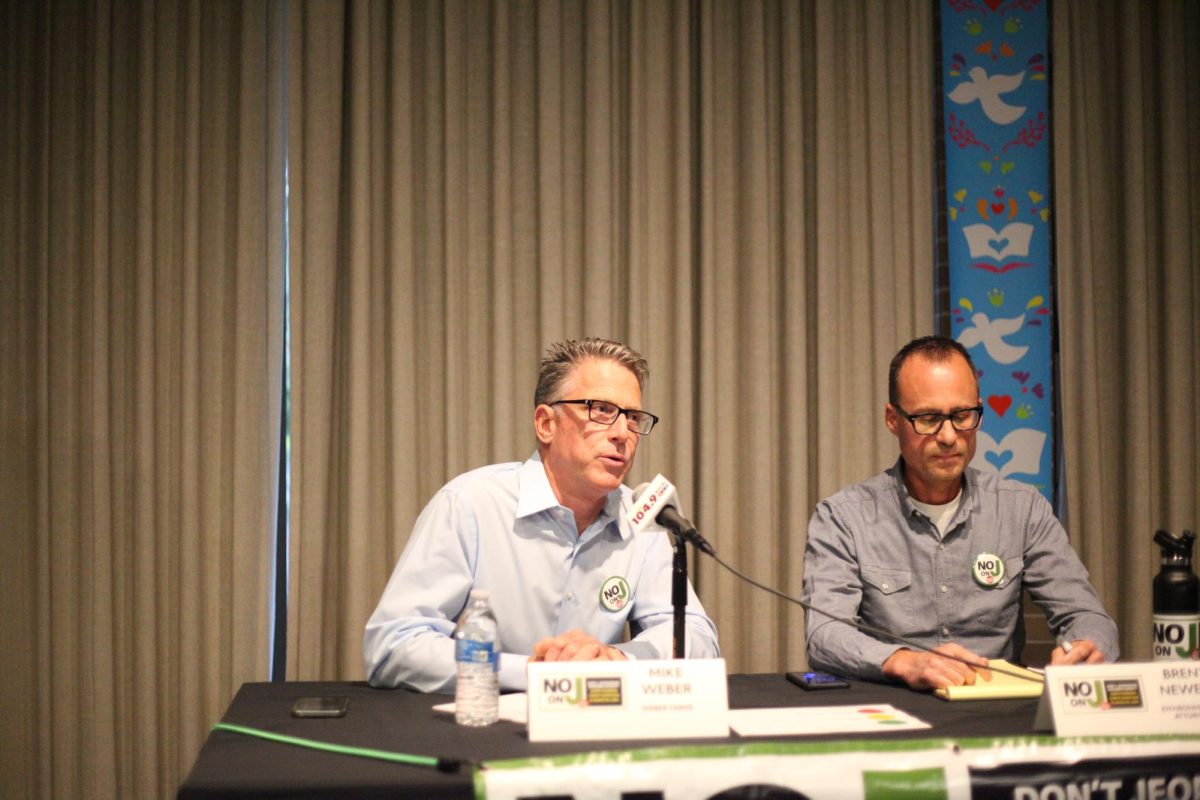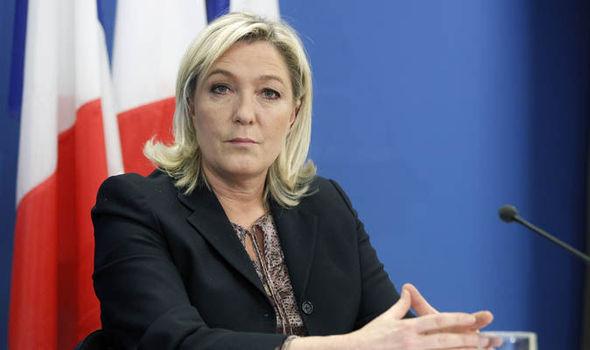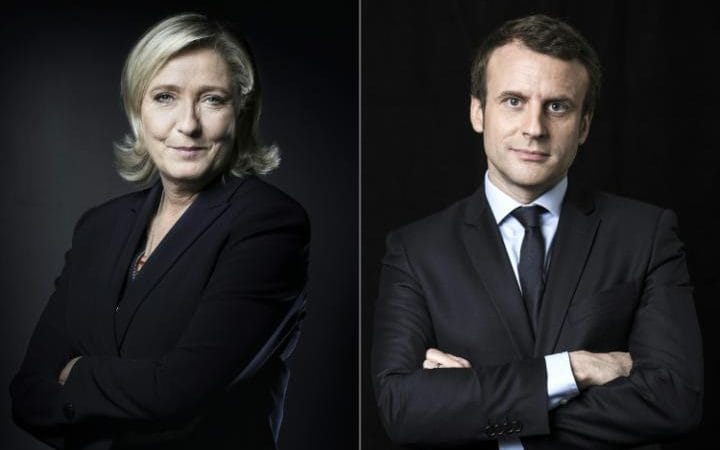The people of France will vote on May 7 in the second round to determine their next president, and the circumstances are a bit different than usual.
What started as a lineup of 11 nominees from multiple parties was narrowed down on April 23 to the final two presidential candidates, according to BBC. Emmanuel Macron, of the non-partisan En Marche movement, narrowly received more votes than far-right candidate Marine Le Pen, but both candidates beat out candidates from France’s typically dominant Socialist and center-right Republican parties.
This gives Le Pen, a candidate who has said she will ban legal immigration into France and denied the country’s involvement in Jewish persecution during World War II, potential to win the presidency, according to the article.
Justine Le Goas, a Fulbright foreign language teacher’s assistant at Sonoma State University, said Le Pen revised the National Front party, originally led by her father Jean-Marie Le Pen, by making the rhetoric “more attractive” and distancing it from more overt racism and skinheads.
“[Marine Le Pen and her father] know what words to use to rally people with them,” Le Goas said. “They’re populists—they’ve always been populist voices in France.”
Joanna Guerrero, president of Sonoma State’s French Club, said many French voters may view Macron as an “establishment candidate” like some Americans saw Hillary Clinton, which could strengthen the appeal of populist talking points from Le Pen, who plays on voters’ fears like Trump did during the 2016 presidential election.
Many French citizens are opposed to public religious expression, according to Guerrero. She said there are more Muslim citizens in Paris than in the U.S. cities she’s visited, which gives citizens an easy “scapegoat” to pin their problems on.
“Marie Le Pen is going to these small little countryside villages that no one ever goes to because she knows this is where… that deep-seated sort of anger is,” Guerrero said.
Macron’s centrist policies may make him the more unappealing candidate for undecided voters, Guerrero said.
“That’s also a little bit frightening… I think in France specifically, if people don’t know where you stand, they don’t trust you,” Guerrero said.
Kimberly McCartney, school director at the Alliance Française in Santa Rosa, said Le Pen will most likely lose the election, and that Socialists and Republicans will probably back Macron.
But Le Pen’s victory could have troubling results, especially if she removes France from the European Union and returns to using the Franc as the country’s official currency, McCartney said.
“The cost of leaving the Union would be incredibly expensive,” McCartney said. “The markets that would be lost, and what effect would it have on commerce between the United States and France… I sincerely suspect it would just make things more expensive, and no one can afford that.”
Guerrero said the EU imposes regulations that might make Le Pen’s populist plans appeal to French voters the same way Trump’s appealed to Americans.
“The French, just like America, they want to make it ‘great’ again, they want to go back to the olden times when it was just the French and it was just the Americans,” Guerrero said.
French politics elections are far more complex than those in the U.S., according to McCartney.
“You never have any one party elected in the first round,” McCartney said. “It always goes to a second round…the top four [in the current election’s first round] were very close to each other.”
McCartney said French politicians usually all attend the same Grande Ecole school, regardless of their affiliations, which gives politics an “elite element” many voters may be wary of.
“The French are not just critical, but they’re also pessimistic,” McCartney said. “So that means that even against their best interests, they’ll sometimes not go out and vote.”
Le Goas said she expects some French voters will engage in a “utilitarian vote” against Le Pen, rather than enthusiastically voting for Macron.
“When you actually go on [Macron’s] supporter’s pages… it’s never about turning to Le Pen,” Le Goas said. “It’s rather voting for Macron, or abstaining, or voting blank.”
Le Goas said she hopes French voters will live up to their “French Revolutionary spirit” by having better turnout than American voters did in 2016.
“France went through World War II with the Resistance… some people are comparing the election to resisting or not doing anything,” Le Goas said, “Because there were many French who didn’t do anything [during World War II] and if all French hadn’t done anything, then the outcome of the war would have been very different for France.”
McCartney said she believes that young American citizens can help prevent injustice in France through various forms of networking, such as crowd-sourcing campaigns.
“Anything that [young people] can do to link up and work with people in France, even if it’s only on an information-sharing basis… I think that’s where we’re all going to start helping each other a lot more,” McCartney said.
In the U.S., people who do not feel properly represented by either of the two main parties should join a smaller party and start new political conversations with others, Le Goas said.
“What I always say for a topic that I feel strongly about [is] if I even change one person’s opinion, then I did my job,” Le Goas said. “Because if I feel very strongly… and I manage to convince them, then it’s one more person who can then feel strongly the same way about the same thing, and then convince other people.”
Le Goas said it is important for both U.S. and French citizens to express their political views beyond just voting, in ways such as writing their representatives or joining organizations.
“I think that the biggest mistake and threat for democracy right now is apathy,” Le Goas said.



































